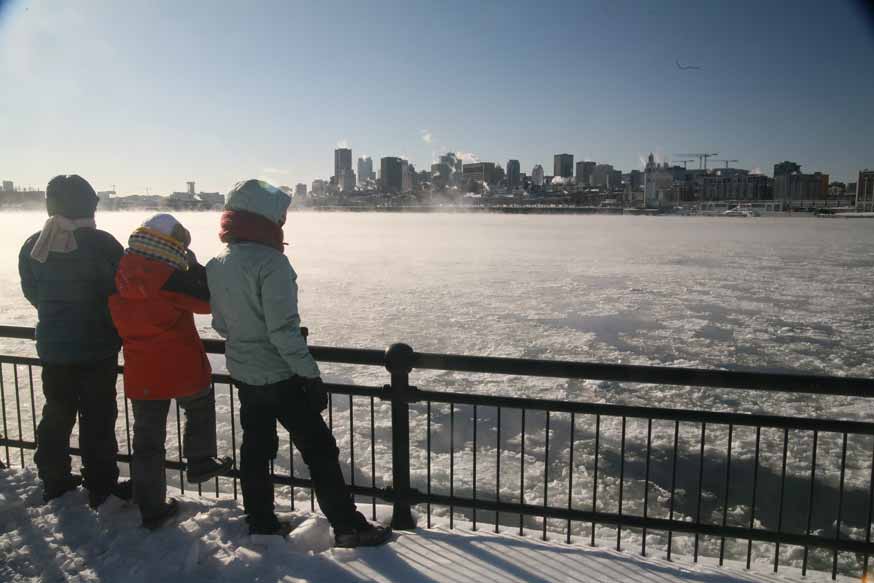
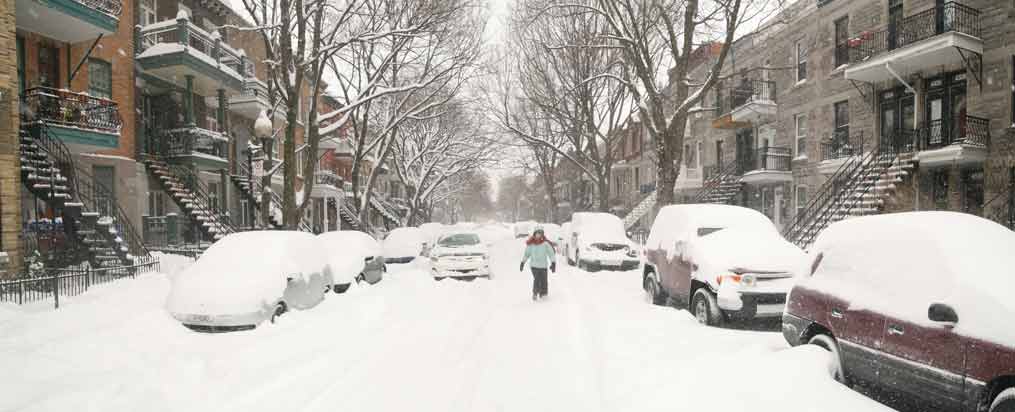
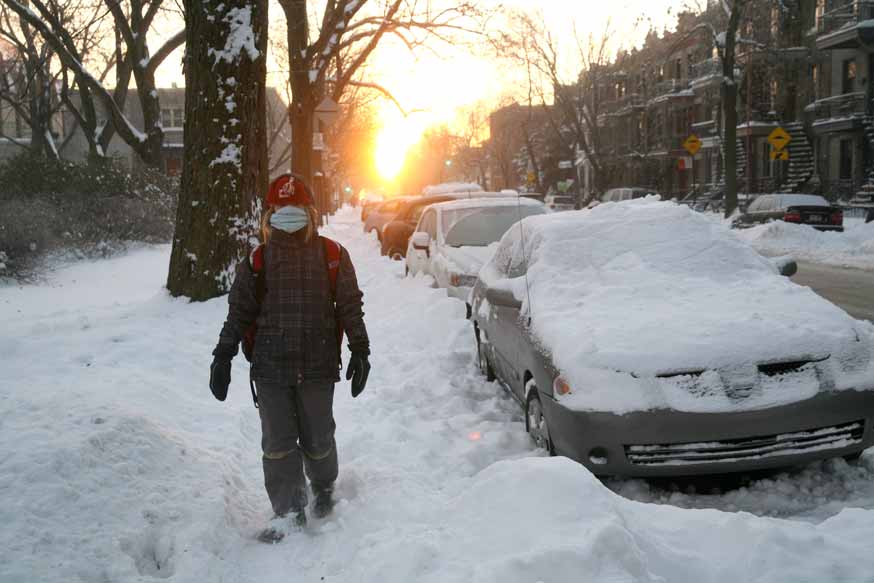
Klick on the photos to enlarge them.
Daily Life in Montreal
 |
 |
 |
||||||
Klick on the photos to enlarge them. |
||||||||
Daily Life in Montreal |
||||||||
|
|
|
|
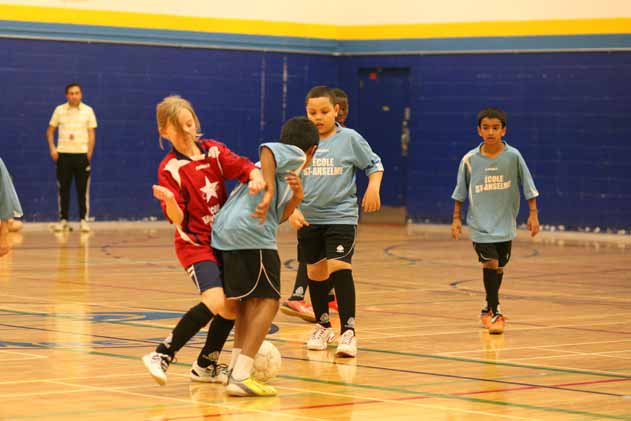 |
|||
 |
|||
Katharina’s school, the École Jean-Baptiste-Meilleur, is a 15-minute walk from home. On most mornings, Katharina and Mike walk there together. They both like this, because when the weather is fine the way to Katharina’s school is directly against the sun rising behind the Jacques-Cartier bridge, and they both like their relaxed talks on the way, about all sorts of things, like the pleasures and pains with her class-mates, about homework, teachers, and soccer, and sometimes they arrange to go skating after school on the ice rink right behind the school. Upon their arrival at Katharina’s school, Mike rides his bike to university, and Katharina goes to her classe d’accueil to Marc, the cool teacher from Paris, whose last name she already forgot, because at the École Jean-Baptiste-Meilleur, last names are not so important. Katharina likes Marc’s way of teaching. It’s both instructive and entertaining, even involving group work, as Felix and Franziska enviously acknowledge, and after school, the fun continues twice a week with soccer and karate practices. On her soccer team, which in her age group is a mixed team, Katharina is the only girl. “But never mind” she explains to her parents “think of it this way: I am the best girl on my team. And playing with all these boys is really good for my soccer skills.” On the team, Katharina evolved from a goalie, which was her position when playing for Schwarz-Weiß Merzbach back home in Germany, to an outfield player. “Being a goalie has disadvantages” she says. “If the others are better than us they always shoot really hard, and when we are better there often isn’t much to do for the goalie. And then, with these giant goalie gloves, you can’t even twirl your thumbs.” An interesting point. |
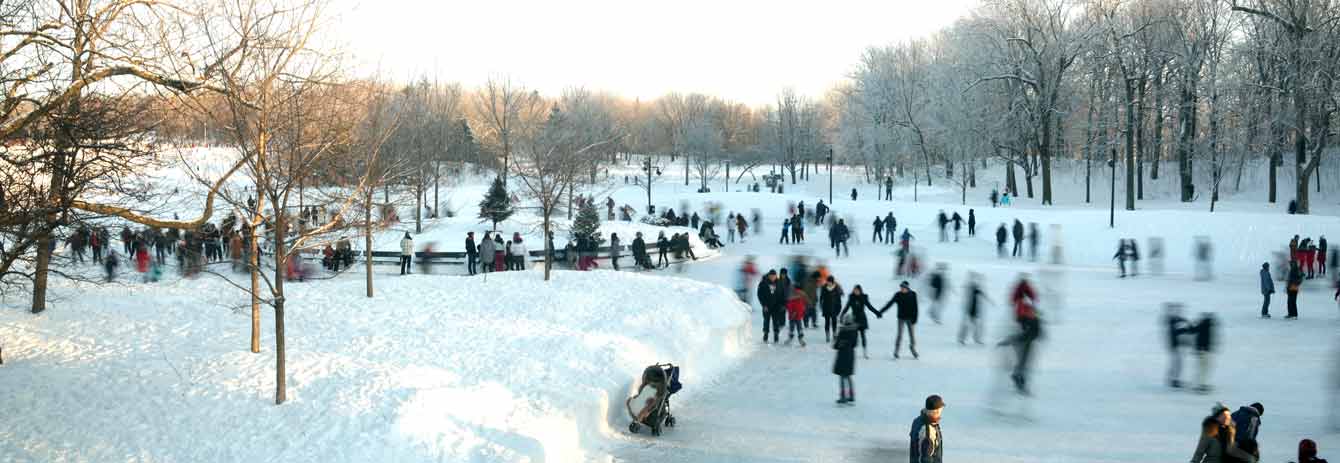 |
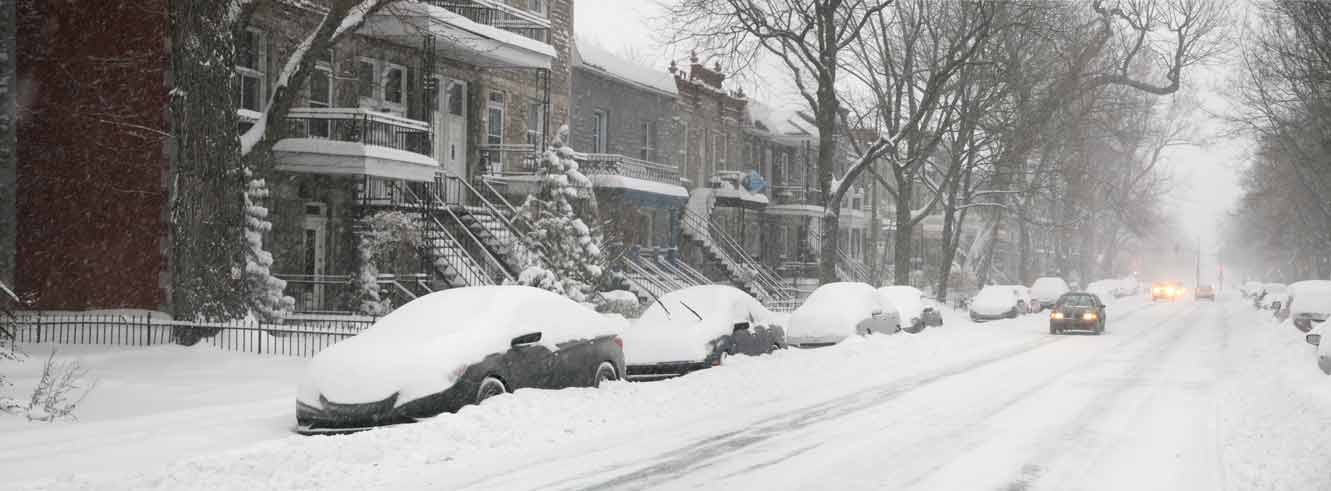 |
||
|
|
||||||||||||||||
|
|
||||||||||||||||||||||||||||||
 |
|||||
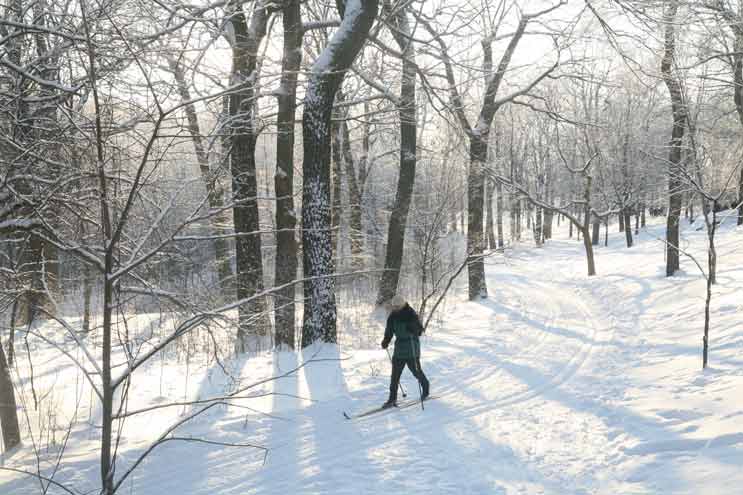 |
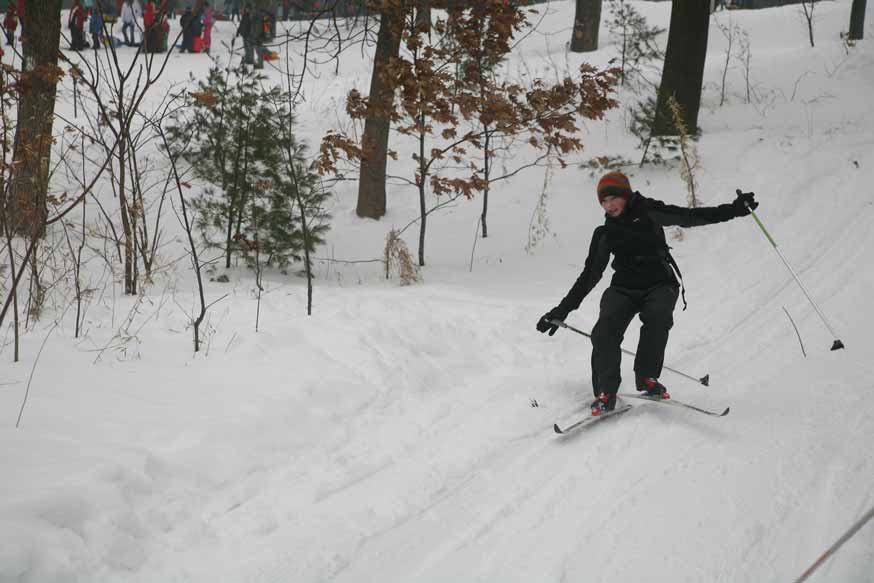 |
||||
Having such a great choice of winter pleasures, it’s of course always fun to let off steam in the outdoors. Who would have thought that with Christmas approaching, Felix of all people, who was always the first to run into the deepest of snow drifts, suddenly prefers to spend his time indoors? More and more often he locks himself in his room, warning everyone coming close with a sharp “Don’t enter!”. Inside his room, the Canadian Geographic special issue with the wildlife photography contest – it’s actually Mike’s, and he’s looking for it like mad all over the place – is on his desk, and Felix does, what he likes best: He draws and draws and draws and draws and draws and draws and draws and draws ... Christmas presents for parents, grandparents, siblings, and the “street grandmas” in Halifax and Rheinbach. |
Change of scene, early January. Katharina and Mike make pancakes for dinner. Franziska is still out in the climbing gym, and Mecki and Mike wonder whether, with all her enthusiasm for bouldering, she’ll make it home in time for dinner. Then, they both volunteer to set the table, since that would leave the other one with the pleasure of moving the car for the deneigement. Felix and Katharina tell each other their latest success stories from basketball and soccer, about three-point tosses and volleys.
“If it were summer now“, Felix says „I could play basketball outdoors.“ “That would be awful“, answers Katharina „because then, we wouldn’t be here any more.“
But until then, we luckily still have a little while. Have a happy new year!the Heinzelmanns |
 |
|||